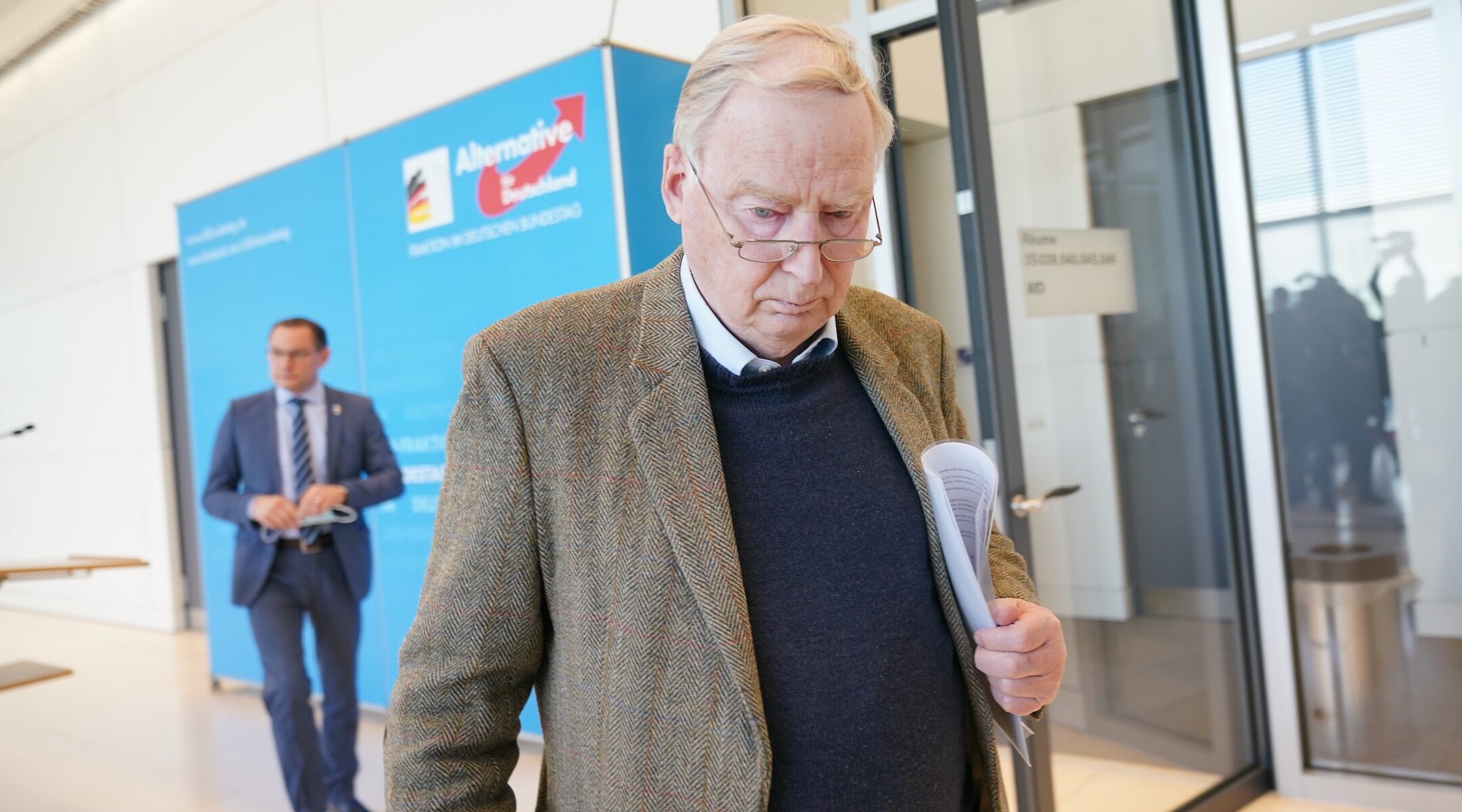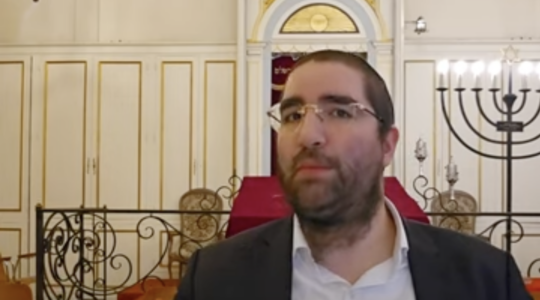(JTA) — Germany is placing a prominent far-right political party under surveillance for right-wing extremism, and local Jewish groups are applauding the move.
According to news reports Wednesday, the Federal Office for the Protection of the Constitution will look at the Alternative for Germany party, or AfD, for possible anti-Democratic activities since early 2019. It’s the first such move aimed at a political party since the Nazi era.
The decision, which the agency has not confirmed, enables Germany’s intelligence agency to conduct surveillance that includes tapping the party’s communications.
In information leaked to Der Spiegel magazine, the decision was based on the findings in a 1,000-page report by the federal agency. The AfD’s youth division has been under surveillance since last year after the agency documented that its members included right-wing extremists.
Beyond Jewish leaders, the news brought applause from across the mainstream political spectrum.
Joseph Schuster, head of the Central Council of Jews in Germany, called it “the right and necessary step,” adding that AfD aims to “undermine our democratic structures and discredit democracy. The state must not stand idly by and watch.”
Former Central Council president Charlotte Knobloch said in a statement that she was “pleased and relieved” at the news. She called the AfD “a danger to our free society.”
Noting the party’s recent association with opponents of Chancellor Angela Merkel’s policies to curb the coronavirus pandemic, Knobloch said the AfD has provided a forum for “wild conspiracy theories, including the trivialization of the Holocaust.”
“A party that … actively infiltrates troublemakers into the heart of German democracy has no place in a parliament,” Knobloch said.
Elio Adler, founder of the nonpartisan, grassroots Jewish Values Initiative, said he welcomed the decision, “as the AfD clearly moves into a more radical direction.” Even during a pandemic “they incite and try to split society,” he told the Jewish Telegraphic Agency.
The AfD, founded in 2013 on an anti-European Union, anti-immigrant and anti-Muslim platform, has become a powerful opposition party in Germany’s parliament. It now has legislators in all 16 states as well as in the Bundestag.
The party has courted Jewish support, but Jewish leaders have long warned of the party’s closeness to the far-right extremist scene and rejected its political views as xenophobic.
Prominent AfD members have attacked Germany’s culture of Holocaust remembrance as demeaning. Its speaker in the state of Thuringia, Bjorn Hocke, once decried Berlin’s Holocaust memorial as “a monument of shame.” Mainstream parties have shunned any coalitions with the AfD.
In 2019, Schuster said he would leave Germany if the AfD became a part of the national government coalition.
Meanwhile, that scenario seems unlikely: National elections are scheduled for September, and the AfD has seen a slight drop in its popularity.
JTA has documented Jewish history in real-time for over a century. Keep our journalism strong by joining us in supporting independent, award-winning reporting.






